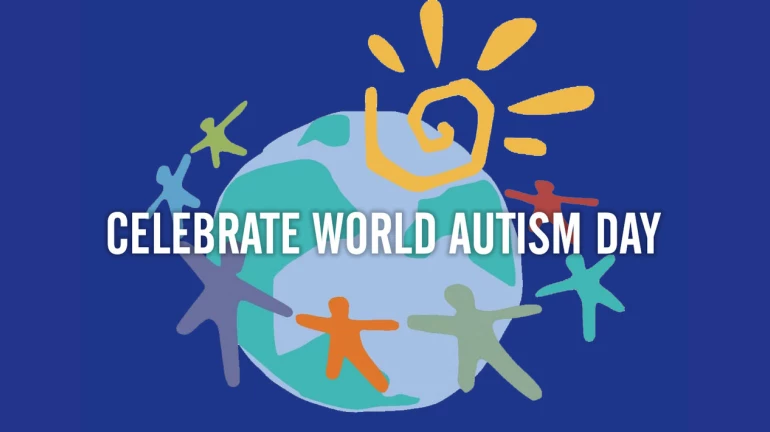
April 2 has been designated as World Autism Awareness Day (WAAD) by the UN. Every year, more than 18,000 monuments in the world are lit up in blue as part of the Light It Up Blue campaign (blue is the colour associated with Autism). As part of Ummeed’s campaign for WAAD, 11 iconic landmarks in Mumbai will be illuminated blue, they are:
Taj Mahal Palace Hotel
Express Tower
Kala Ghoda statue
Charkha statue
BMC Building
Royal Opera House
Jaslok Hospital
Reliance Hospital
Jindal Mansion
Essar House
Taj Lands End
Such efforts are truly commendable but the question always remains of how much are we aware of Autism or any other psychological disorder? How many people actually know about its symptoms and would know the exact way to deal with it? How easily we label them ‘disabled’ but refuse to see their dilemma?
There is a constant dilemma and debate both within and outside the disabled community where the term disabled itself brings in a lot of negative connotation with it. By labelling someone as ‘disabled’, we’re assuming right away that the person is incapable of doing something. However the term ‘differently abled’ justifies them perfectly.
1 in 59 children are diagnosed with autism and the numbers that are just tagged as ‘abnormal’ goes unnoticed. The special wiring inside the autistic brain can make a task easy for them which would be difficult otherwise such as mathematics, drawing and music and the activities we find easy are incredibly difficult to them such as, making friends.
Sadly in many cases, the person can’t say out loud how they feel. With even the chaos going on in their heads, they seem okay from the outside but are unable to ask for help. We all develop behaviours which help us to calm down in difficult situations, we may look away, chew our fingernails, hug ourselves, bite our lips and so on. Equally, autistic people develop behaviours which act as their coping mechanisms like rocking, pacing, or hand flapping repetitive and stereotyped body movements. They may have unusual responses to people, attachments to objects, resistance to change in their routines, or aggressive or self-injurious behaviour. At times they may seem not to notice people, objects, or activities in their surroundings. Some children with autism may also develop seizures. And in some cases, those seizures may not occur until adolescence. These actions may seem unusual but it's their way to calm down, if they haven’t, it means they’re having a hard time and a kind thing to do would be not giving them a harder time by getting cross, ignoring them, or worse, mocking them. People with autism need friends that would be patient and willing to communicate with them.
Only 26 per cent of the disabled are employed and even less than 10 per cent are employed in the formal sector. What's the point of educating them if there are no suitable job opportunities to compensate their education. Should we talk about education first and think about employment later? Or should we create an employment infrastructure and the education sector will ultimately follow? Doesn’t it form a vicious cycle?
It's only after we met these dynamic people we realise the limitation of our own thoughts. Not only have these people excelled in diverse fields of sports, arts, management, entertainment and social work, they have also made us realise the short-sightedness of our own vision.
Unfortunately, many corporate HR personnel suffer from the same short-sightedness. Many say they would not recruit a differently abled person at all. Most mentioned they have no policy for the employment of such people. Only a few said that they would do a competency matching before taking the decision and hardly a handful ever were true to their words. Even those who are recruited are underpaid and exploited on the pretext of disability.
We often tend to brood upon the problem than thinking about solutions. A job of a traffic policeman can easily be fit for a deaf person, in fact, he would be at an advantage, as he would be unaffected by the constant exposure to noise. Data entry jobs can easily be done by someone who is physically handicapped. Autistic people can be trained to do jobs which are monotonous.
Aditi’s corner is a restaurant in Belapur run by Aditi, a girl with down syndrome, serves as a great example of their calibre.
The need of the hour is not to confine people but to create opportunities for them to come out of their homes. It's high time that the corporates and government do their initiative rather than considering ‘bhajiya wala’ a way of employment.
So the next time when you hear a job opening, spend a minute to think if you could map that job to a differently abled person. If you can, walk up to your company’s HR and germinate the thought of employing someone to that job.





